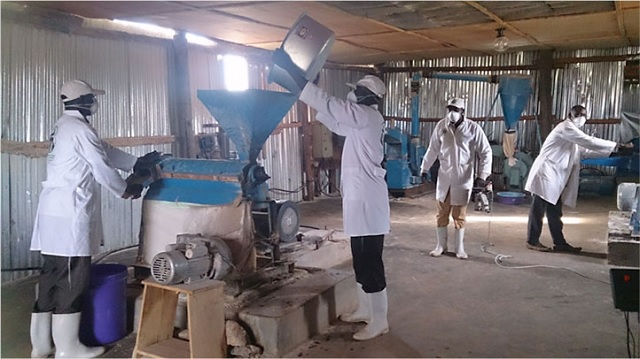
Kampala, Uganda | THE INDEPENDENT | The Uganda National Bureau of Standards (UNBS) has withheld 140 metric tonnes of maize grain from suppliers over poor quality.
There have been numerous complaints from the public concerns on the quality of cereals with some reportedly containing particles, moulds and aflatoxins among others.
According to UNBS, although they check out for contamination including poisonous metals, pesticide residues, hazardous microorganisms, parasites among others, they also look out for Aflatoxins which in most comes as a result of poor handling of the food.
According to UNBS, the total aflatoxin levels in maize grains for human consumption should not exceed 10 microgram per kg which is hazardous for human consumption.
If the food is to meet the standards, it should also be free from toxic substances, pesticide residues and should meet standards of moisture, maturity, foreign matter in the product among others.
For beans, it should be dried mature seeds, well-filled, clean, wholesome, uniform in size and shape, free from micro-organisms, fungi or other poisonous substances.
Ben Manyindo, the Executive Director UNBS says the quality of the maize flour and beans has kept on reducing in percentage since they started testing. He says as a result, they have been confiscating substandard maize grain and also asked for the reprocessing of some.
Manyindo says for instance when they started testing, the maize products of good quality stood at 88% but this has decreased to 72% for maize flour by Monday meaning the quality is getting lesser and lesser.
He says the huge drop in quality is worrying as it means the suppliers are failing to meet the standard but also that the supply is running low.
Manyindo adds that a good number of the products have also been sent back for reprocessing for those who can follow the reprocessing protocol, while those who cannot reprocess have their products held, probably until the end of the lockdown.
Manyindo says that handling maize grain for Ugandan farmers is more complicated than handling beans as seen in the testing they have conducted.
Ugandans suppliers including major players face a huge problem in the processing of their final products ranging from transportation and storage among others.
******
URN
 The Independent Uganda: You get the Truth we Pay the Price
The Independent Uganda: You get the Truth we Pay the Price


